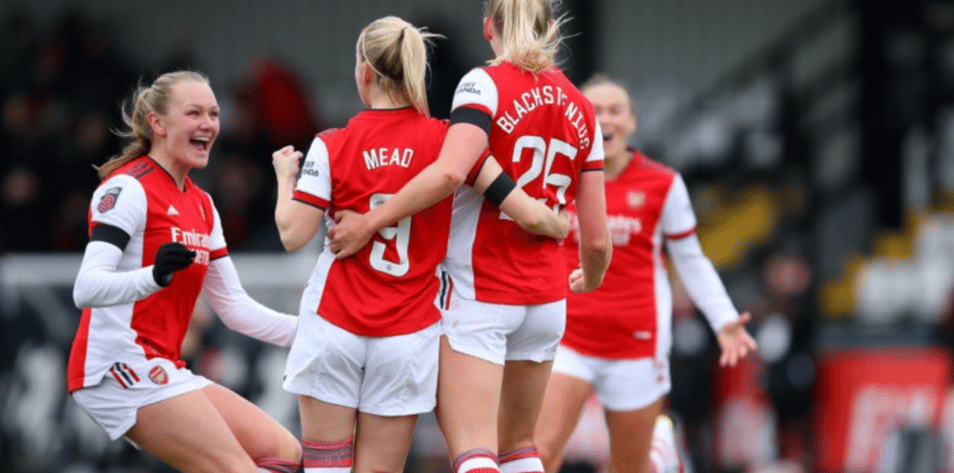Shedding Light on the 2023 State of Visbility in Women's Football [Audit]
Jun 15, 2023 Best Practices & Insights


As a passionate advocate of women’s sport, I was thrilled to digging into the state of visibility of women’s football clubs in 2023. This report delves into how each club with both Premier League and WSL teams display their men's and women's teams on their websites, and where inequity lies.
When it comes to sports, football has often been seen as a male-dominated industry. However, there has been a significant increase in the number of women's football leagues, with more female athletes making strides in the sport and gaining recognition. However, visibility and media coverage still remain an issue in women's football. That's where our new Women's Football Visibility Audit comes into play, a 2023 report aimed to dig into how each club with both Premier League and WSL teams display their men's and women's teams on their websites. Let’s dive into the report and point out the inequities the audit revealed.
DOWNLOAD THE WSL X PREMIER LEAGUE WOMEN’S FOOTBALL VISIBILITY AUDIT
Primary aim of this research is to examine how clubs in Premier League and WSL (Women's Super League) displayed their teams equally on their websites. The audit ranked the clubs based on criteria such as the presence of women's team on the homepage, display of women’s-only stats, and if the women’s team has their own webpage.![Shedding Light on the 2023 State of Visbility in Women's Football [Audit]](https://blog.relometrics.com/hs-fs/hubfs/undefined-3.png?width=370&height=407&name=undefined-3.png)
There is still a significant disparity in how men's and women's teams are displayed on club websites. While some clubs have made great strides in promoting their women's teams, others have not given them the same level of visibility as their male counterparts. This is a concerning trend, as it perpetuates the idea that women's football is somehow less important or valuable than men's football.
For instance, the audit found that Manchester City and Arsenal topped the rankings due to their efforts in featuring their women's teams on social media and website platforms. It also revealed which clubs have a dedicated women's section on their websites.
However, the report also highlighted some major areas where inequity persisted. For example, some premier league clubs failed to display any imagery or logos of their women's team on their websites. Additionally, some clubs failed to provide full match reports of women's fixtures, while others failed to announce their women's team player signings. These disparities demonstrate a lack of commitment to promoting women's teams across the sport.
The study also revealed that there is often a significant difference in the budgets available to men's and women's teams, which undoubtedly impacts visibility. This is despite the fact that research proves that the women's football industry is growing. This inequality means that women's teams are still struggling to gain equal representation in the sport, reducing their chances of securing sponsorship deals and endorsements.
One of the significant findings of the Women's Football Visibility Audit report was that visibility is not limited to websites and digital media. Clubs should focus on genuinely promoting women's football across all platforms, including video boards, match-day programmes, and merchandise, to ensure maximum exposure. Promoting women's football also entails creating gender-neutral branding and marketing campaigns that appeal to both male and female fans to grow their fan base.
The Women's Football Visibility Audit report provides vital information on the inequities in women's football and highlights where the football clubs have been successful in promoting women's football and areas where they still need improvement. Sponsors of sports teams can use this information to make informed decisions about investing in women's football clubs as the industry grows. The clubs themselves should use this information to address inequalities and promote women's football, both online and at matches, to encourage visibility, fan base growth and ultimately attract more sponsorship. Through such concerted efforts, there is no limit to just how successful women's football could become in the future.